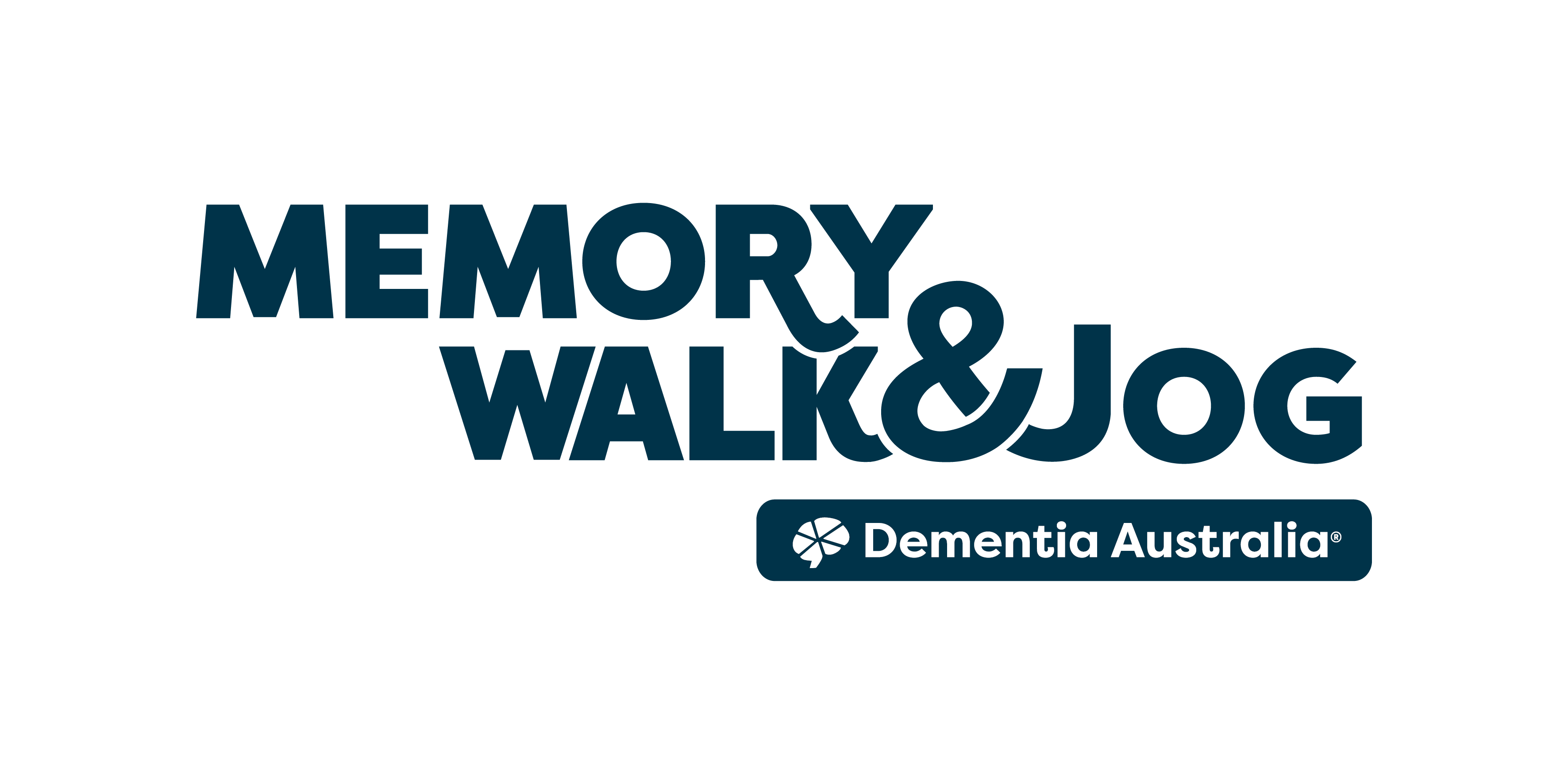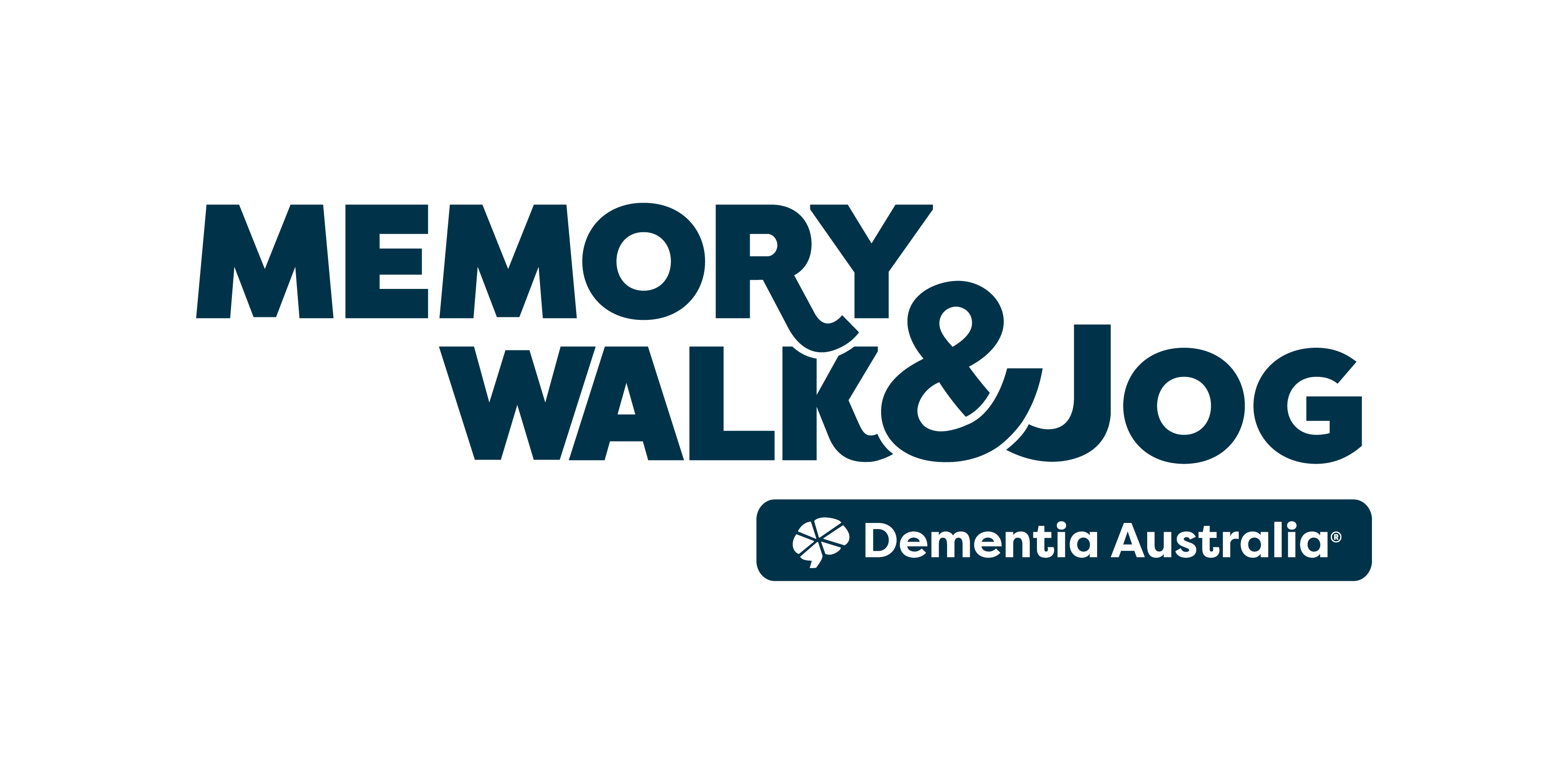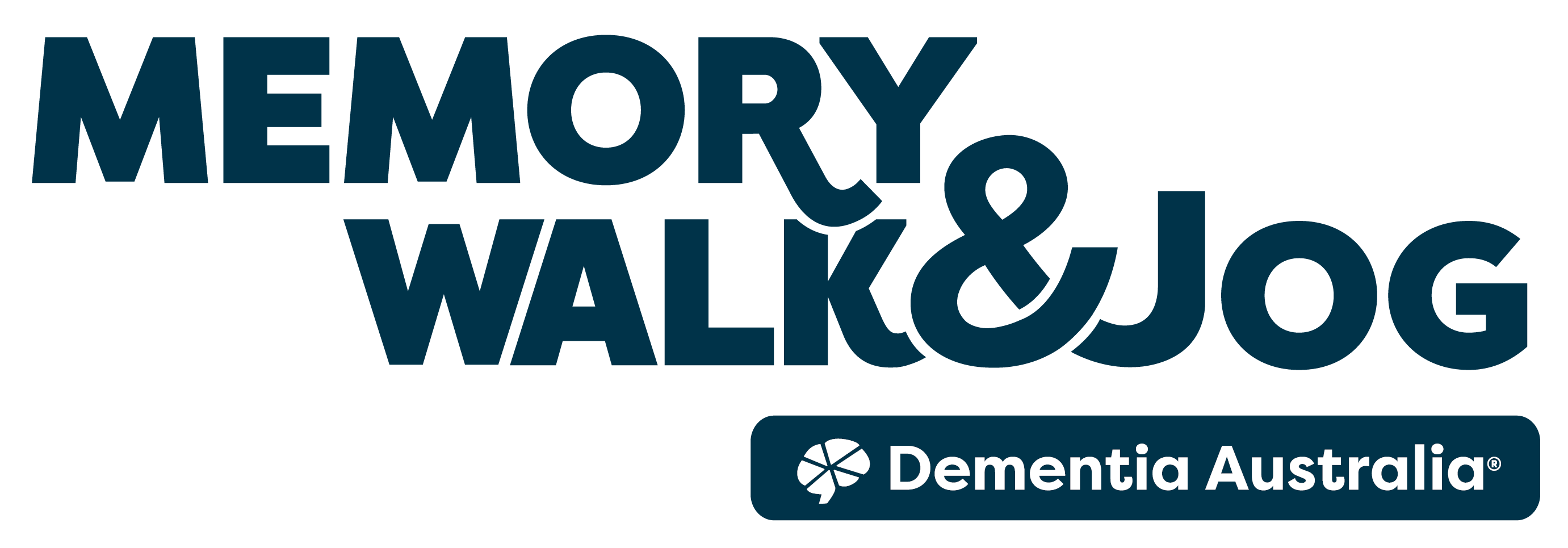Deborah Kerr Family
Sunshine Coast Virtual Memory Walk & Jog
"Mum’s mental acuity had been deteriorating very slowly for a number of years and was still in the “whimsical” stage - mispronouncing words and that, seemingly harmless, sort of thing. That was who she was and we loved her for it.
With my dad it was quite a shock, as he had always been the one in control. Diary in hand, organised the bookwork, purchased the shares, looked after the finances, planned the holidays etc. His diagnosis explained many things which had come to our attention, and we had already realised we needed to step in.
"In short, Mum’s diagnosis was expected but Dad’s hadn’t been."
It was almost a relief to have our suspicions credited. It was also very sad because of the chain of events and thoughts that followed.

Symptomatically, Mum’s memory was deteriorating, but Dad’s symptoms were more pronounced; increasing difficulty making decisions and processing new information, behavioural and personality changes, constant calls to have the same conversations repeatedly in one day. It was more shocking in Dad’s case as it was really changing the man in front of us.
Mum and Dad were both very sincere people, well-meaning people, greatly committed to family, friends and community. They both loved life and sought new experiences within their means. They also loved their home, nestling in to the quiet comforts of familiar bird sounds, warm fires, morning tea on the balcony, Scrabble on the back deck. They loved visiting family, always wanting to be busy helping while they were there (always asking for a 'jobs list' so they could help), loved bushwalking and playing cards with friends. They played Scrabble together every day of their married life until probably the last two years when Dad’s cognition declined sharply.
"Life advice was by example: love your family, tell them you love them, and then gauge when to let your own loved ones learn from their own experiences."
I always figured that the hardest thing about being a parent was when and by how much, to let your children go, little by little, and do things their own way. I learnt that from Mum and Dad.
The rivalry between my dad and my husband when the football, particularly the State of Origin, was on was the stuff of good-hearted legends! And Christmas was always a huge thing, especially for my mum… the big family lunch, coins from her coin collection in the pudding, the mountain of presents under the tree, selecting the tree (we always had a real fir tree) and decorating it, what special crockery was used for what dish or condiment and hearing it’s story. I loved it!!
The hardest thing to come to terms with is the realisation of the quantum shift in the family roles - the realisation that you are now in effect parenting your parents, making often difficult decisions in their very best interests, and seeing those decisions through. It’s an honour to care for your parents, and certainly the natural order of things, but it’s a very difficult and emotional experience. It’s an almost surreal experience to see your parents, who have loved you all your life and know so much about you and your family and friends, drift away and not be able to recognise you.
"The most positive thing to come out of this experience is that it gave me more time to spend with my parents and the opportunity to learn more about their past and reminisce."
As their ability to engage declined, it was really heartwarming and productive to simply chat about photos and observe the delights of little things all around. It makes you slow down a little.

From my personal experience, hopefully, I’ve also developed greater patience and increased respect for older people and their carers. I’d also like to think it’s made me get my own act together being clearer with our children about what we would like in our later years, or at least starting those conversations, and about trying to get things a bit more organised.
Unfortunately, a friend of mine has been rocked by her sister’s diagnosis of early onset dementia. I was able to tell her about Dementia Australia and she has found the tutorials and counselling invaluable. It’s a very stark reminder that dementia is not just a disease the affects 'old' people or something you may have to deal with 'later'… This woman isn’t even close to 60.
Information provided by Dementia Australia was important as well; knowing there was an authoritative organisation willing to help us emotionally as well as practically."

Virtual Memory Walk & Jog
"This is our second year participating in Memory Walk & Jog. Last year at the Sunshine Coast event we were joined by some family members, friends and work colleagues, even my daughter’s greyhound joined in! 2020 is a whole different ball game so we’ve signed up for a Virtual event and nominated a day to walk wherever we all are. Hopefully, we’ll be physically joined by a small group of appropriately socially-distanced friends, with a small celebration to follow. This year we’re also walking for my friend and her sister who has been diagnosed with early onset dementia.
The reason we wanted to participate was to support the 'family connection’s cause' and, in the light of my mum and dad’s diagnoses, wanting to support the organisation that supports dementia loved ones.
I’d encourage other’s thinking about participating to do so as it’s really easy to do the distance, the place, the time, date, the speed - it’s all entirely up to you. You don’t even need to physically co-ordinate with anyone else - how easy is that!! No excuse, really!
The best thing about Memory Walk & Jog is that exercise always makes you feel better, so why not get some exercise and bolster your soul as well?! The previous events also provided a sense of camaraderie as well as the opportunity to get some information.
This year as we head into Virtual Memory Walk & Jog we have adapted by trying to send some little posts to family and friends, and by keeping up the exercise. It’s been a nice distraction trying to figure out how to 'do' it under the current circumstances.
To stay active during this time is very important. Tips I would pass on would be incidental exercise - take the stairs, do some star jumps… whatever gets your blood pumping even if only for a short time! And get outside and get some Vitamin D if you're able to! Even a walk around the nearest park is good for the soul. It avoids developing cabin fever, gives you lots of delightful things to look at, the whole fresh air and (hopefully) sunshine thing, seeing other people doing exactly the same thing so you still feel somewhat connected.
Don’t forget the brain gym too! Personally, I’ve also really enjoyed the whole Zoom / FaceTime connections, but can’t wait to get back to actually gathering with family and friends.
Fundraising can be pretty daunting but you can spread the word: not too much, and not too often. People are attracted to different causes for different reasons and we should all respect an individual’s right to not engage. Make it light - it doesn’t detract from the seriousness or sincerity of the cause, it just helps make people more willing to engage." - Deborah





